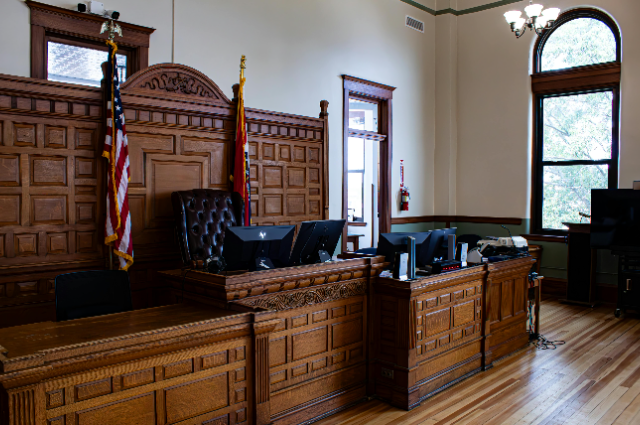
The courtroom committed
to maintain innocence's sanctity,
a version of justice's theater,
with legal jurisprudence as a sworn entity!
Soon came in a case to behold
when the courtroom was tested
in terms of moral support.
The day was clear and quiet,
and the court’s atmosphere
stood as a sturdy legal spine.
The session began promptly;
the judge adjusted her lenses
and saw a teenager named Ravi,
conscious of his defenses.
She maneuvered herself
and engineered her words.
“Ravi, you are accused of theft,” she said.
He responded, his words blurred.
He managed a portrayal of reality
when the advocate urged him
to provide clarity.
"Ravi initiated a resurgence
from his nervousness,
and reasoned through his compulsions
to address his offense!"
The judge showed a different side:
"The courtroom is listening," she said,
and Ravi continued to provide.
"The times are running diabolic,
my mother is pale and sick.
Securing her treatment and tonic
is my pre-eminence as I speak.
"Surviving with only my mother,
I earn minimally from my art;
I work at a seamstress boutique
to fill my daily cart."
The advocate, moved by reminiscence,
questioned, "Ravi, was theft
the only way to deal
with your plight’s existence?"
"Ravi regained his composure
when recalling his pleas to borrow,
soon understanding they had
no well-wisher to share their sorrow."
"Instead, guided for spiritual redemption
and visiting holy places,
but no blessings turned to the munificence
to grant my mother's healing grace."
Losing hope in destiny’s gamble,
I knocked on every door,
but faced the ultimate scrutiny
as my belief withered to the core.
The deadline for doctors
clutched my senses.
Through theft at the workplace,
I improved my mother's chances.
"I recall this theft as a moral thumbscrew,
but the pressure made me steal
valuables from my master,
with immediate pursuit."
The advocate responded to Ravi’s tale.
“Choosing this path was,
you say, an immediate fix,
but to which scale?"
Ravi nodded, admitting,
"The law’s territory isn’t wide enough
to capture every life's story
or the agony beneath the rough.
"Intentions behind the crime—
a graveyard of pain and torment—
become stains in the law’s eyes,
the truth behind them left dormant."
The judge radiated her vision:
"The law exists to prevent exploitation
and wrongdoing as its broader mission.
"Drop by drop, legal provisions formed
like stalagmites over time;
now our constitution stands tall—
a monument built line by line.
"Hardships are the nature of life,
seeming illusions to test
how we survive and strive."
"We cannot excuse every such act.
It becomes your nemesis,
diminishing proportions of respect."
This softened reprimand
deepened Ravi’s sense of guilt.
He spoke with earnest words
that entered the judge’s lexicon, newly built.
The advocate highlighted
the importance of consequence,
urging Ravi to shape his choices
and understand their sequence.
The judge continued:
"We seek to balance justice with mercy.
Though your case isn’t unique,
survival instincts lead to controversy."
Advocate avoided lambasting
to build the teenager's aptitude.
He said the law is not that flexible,
but our responsibility to understand
shall not fall acute.
The judge navigated Ravi's errors
and said we are here,
to decide on your
second chance, clear?
"Your desperate act
to care for your mother
speaks to the bond you share.
I believe you deserve
a way to atone and repair."
"But life is challenging
and will lay dark paths.
Know that it is an hourglass,
testing how we endure and surpass."
Ravi said, "Thank you, your honor.
If given a second chance,
I will face life's oddities,
prepared at every step and glance."
The judge then resolved her task:
"We will adopt a middle path.
Your request for a second chance
will help correct your course fast."
The advocate was tasked
to develop a plan of restitution:
to enroll Ravi in community service,
guiding him through destitution.
Ravi honored this approach
as his life’s rhetoric,
viewing it as an opportunity
to correct his missteps, once tragic.
As Ravi left the courtroom door,
he felt a deeper truth to explore—
that justice holds not just punishment’s creed,
but also the grace to fulfill human needs.
Through compassion’s subtle sway,
he learned law, in its measured way,
could pave paths not only to reprimand,
but to lend a guiding, forgiving hand.
